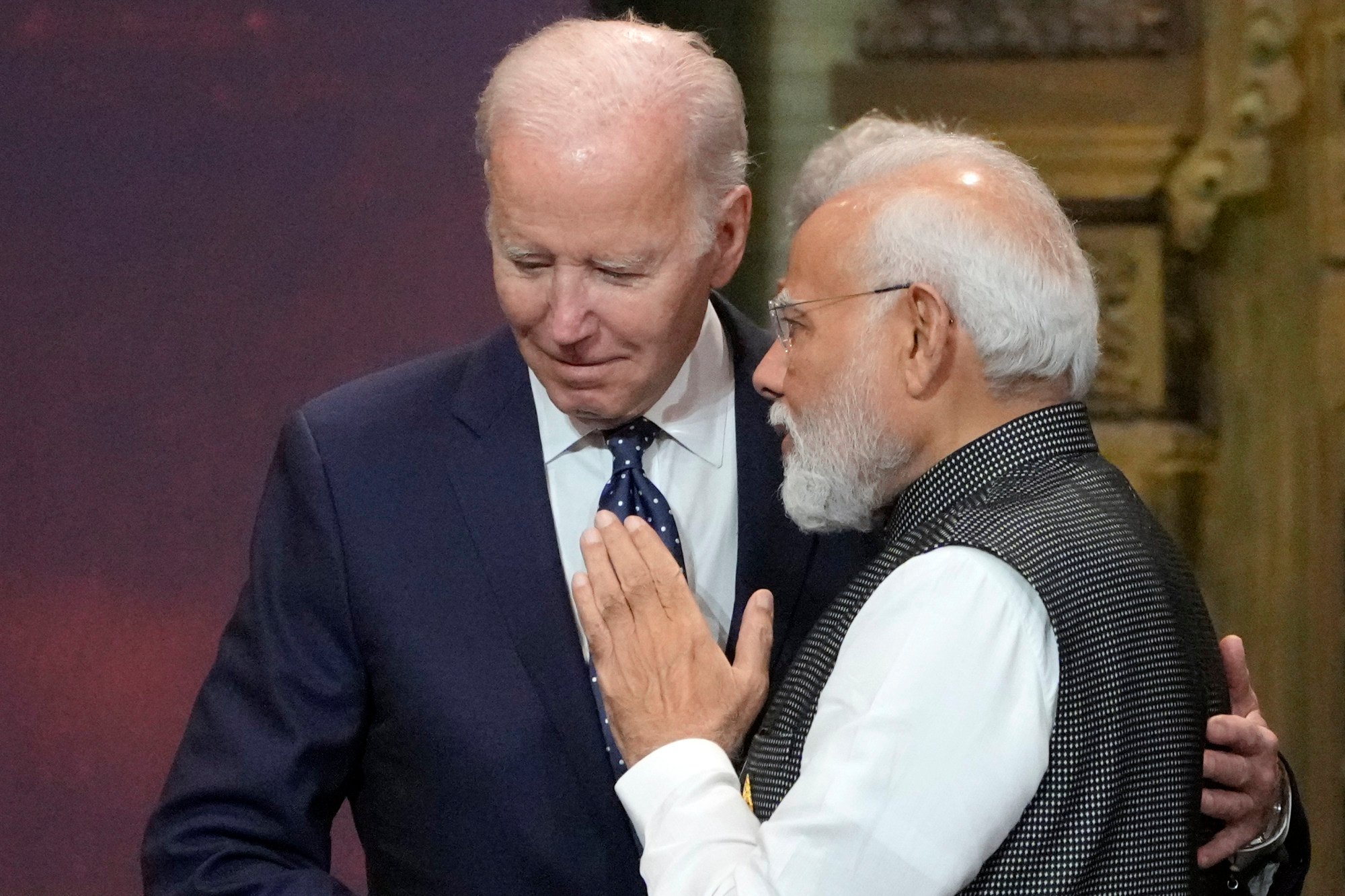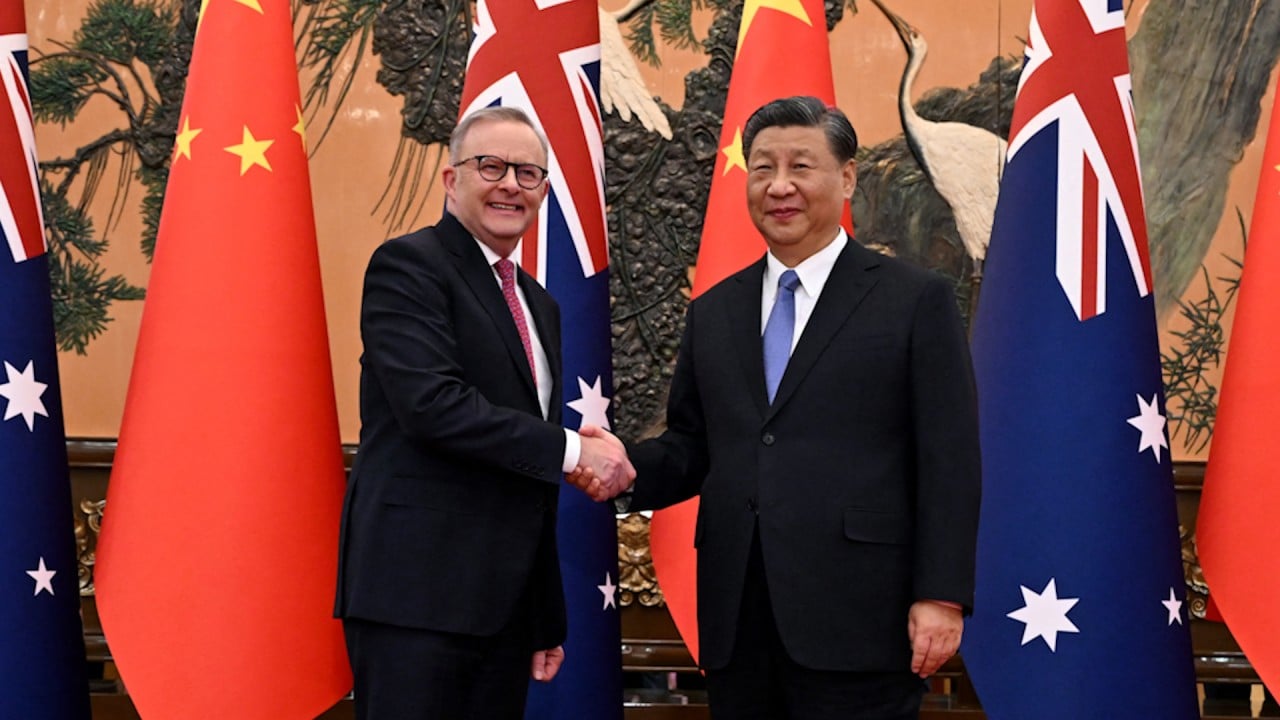With India’s general elections in April and May and the US presidential elections in November, media reports from these countries have suggested that the next likely window for a meeting of Quad leaders would be the end of this year.
Australia ‘buying US hegemony’, ex-PM says as he slams Canberra’s China policy
Australia ‘buying US hegemony’, ex-PM says as he slams Canberra’s China policy
Tom Corben, a research fellow at the United States Studies Centre at the University of Sydney, said meetings between Quad leaders play a major role in setting and driving the regional security agenda. As such, a missed summit “could see some of the high-level political wind come out of the Quad’s sails”.
“The Quad already has a stacked agenda as it is, and one which has yet to be fully implemented, so it may not be an entirely bad thing for a year to pass without any new lines of effort that put more pressure on the four countries’ capacity to realise their aspirations,” Corben said.
Committed to supporting the region’s development, stability, and prosperity, Quad’s major initiatives centre on infrastructure, maritime security, public-private partnership, climate, health, critical and emerging technologies, and space.
Japan has paid millions over American military aircraft noise. Why not the US?
Japan has paid millions over American military aircraft noise. Why not the US?
Eleanor Shiori Hughes, a non-resident fellow at EconVue, a think tank based in Chicago, said that given Biden’s priority in seeking re-election, it will be more difficult for his administration to push for confidence-building measures to reassure the region that America will not “taper its presence”.
However, Rupakjyoti Borah, a senior research fellow at the Japan Forum for Strategic Studies in Tokyo, said the postponement of the Quad summit is mainly due to domestic considerations, noting that Biden was in India to attend the G20 leaders summit last September.
The bloc is unlikely to lose its momentum, said Borah, adding that India’s importance to the US will only grow as the two countries foster closer defence ties.
“With Japan and Australia too, India is getting closer, especially in the maritime security domain,” Borah said.

Defence cooperation between New Delhi and Washington is wide-ranging, including regular bilateral dialogue, military exercises, and defence procurements. In November, the US announced a groundbreaking collaboration with India to co-produce infantry combat vehicles.
During a meeting between India’s External Affairs Minister Subrahmanyam Jaishankar and his Japanese counterpart Yoko Kamikawa in Tokyo on Thursday, both countries pledged to strengthen cooperation in defence and security, including in new areas such as space and cybersecurity.
India and Australia have also previously agreed to strengthen information exchange and cooperation in intelligence, anti-submarine and anti-drone warfare.
Sumitha Narayanan Kutty, a research fellow at the Centre for Grand Strategy at King’s College London, said changes in US leadership in November’s election are unlikely to slow the Quad’s progress since the bloc has strong bipartisan support in the US.
“Differing member positions on important issues, such as the Russia-Ukraine conflict, have not disrupted the functioning of the group,” Sumitha said. The Quad’s engagements also include meetings at bilateral and trilateral levels, she added.
India’s protesting farmers close in on New Delhi with new travel strategy
India’s protesting farmers close in on New Delhi with new travel strategy
Not seeing eye to eye?
However, doubts have set in recently on whether the Quad is united on regional and global security issues.
Since the start of the Ukraine war in February 2022, India has abstained from criticising Russia for the invasion, drawing criticism that it is not moving in lockstep with the other three Quad members.
In recent months, claims of an alleged plot by an Indian agent to kill a Sikh separatist on American soil and alleged human rights violations in India have also drawn concerns about India’s commitment to the Quad’s values.
While Quad members’ priorities may appear unaligned at times, Hughes said it is natural that they navigate the complexities of their respective political landscape, which can “occasionally interfere” with Quad-related initiatives.
The Quad will continue to strengthen regional connectivity and “work hand in glove to address the evolving nature of China’s military and geoeconomic encroachments”, Hughes said.
“What is most important is that the four countries can collectively signal that the Quad is an enduring and stabilising force in the region.
“Make no mistake, the Quad has – and will continue to be – the North Star when it comes to the Biden administration’s efforts to institute multilateralism as the centrepiece of its Indo-Pacific strategy,” Hughes added.
China is wary about the emergence of what it calls “exclusionary blocs” and has outlined its stance on the Quad on multiple occasions.
In response to a reporter’s Quad-related question at a briefing last year, Chinese foreign ministry spokeswoman Mao Ning said, “We believe that state-to-state cooperation needs to be consistent with the trend of peace and development rather than be about putting up exclusionary blocs. We hope certain countries can do more things that contribute to security and mutual trust between regional countries.”
Corben said Quad countries must be resolute in identifying their top priorities in its long to-do list such as maritime security where there is general agreement between them on the issue.
Concerns expressed by some regional observers over the rescheduling of the Quad summit were a reminder of the key role that US domestic politics play in determining US strategy and engagement in Asia, according to Corben.
“Remember we are still dealing with ‘ifs’ and ‘maybes’ at this point, though there is also no reason why the leaders could not meet virtually instead as they have in the past,” he added.


